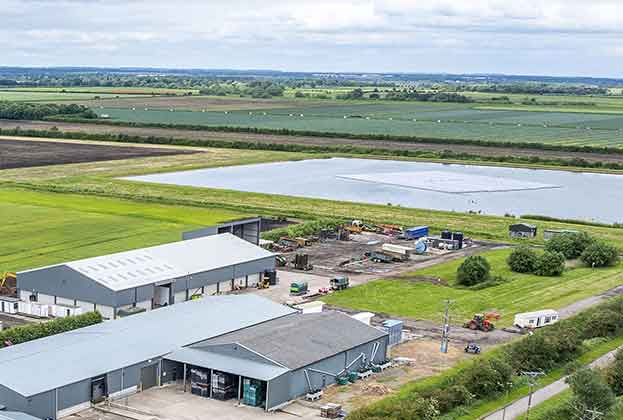1. Integrated sustainability
All businesses will be expected to have sustainability woven into the fabric of their organisations. Dedicated experts are needed more than ever, but there is also a growing requirement for sustainability to become a part of everyone’s day-to-day job description.
2. Zero tolerance for ‘green wash’
Promises made by global leaders at COP26 were famously dismissed last year by Greta Thunberg as more ‘blah, blah, blah’. The public understanding and subsequent scrutiny of sustainability commitments has never been higher. The expectation for honesty and accountability will impact organisations who fail to comply.
3. Disclosure and reporting
More and more countries will be following the UK to make sustainability reporting and disclosure mandatory (see Taskforce on Climate-related Financial Disclosures (TCFD) reporting). Data will be needed if we are to meet the pledges made at COP26 (see We need reliable sustainability data if we plan to meet our net zero targets).
The United Nations (UN) backed non-profit Science Based Targets initiative (SBTi) is set to help companies collect more comprehensive inventory of their emissions, avoiding greenwashing.
4. Supply chains
Supply chain sustainability is essential for those wanting to get serious about net zero and circular economy commitments (see Why sustainability is important for occupier supply chains). At present, many companies exclude their supply chains although they typically account for 80 per cent of scope 3 emissions. The trickle-down effect of sustainable supply chain management has the potential to significantly raise standards.
5. Energy risk management
The 2021 energy crisis is far from over and is only set to get worse. Globally, as we shift to a lower carbon economy, moving away from coal, we’ll see an increase in the uptake of gas and nuclear power. The price of renewables derived energy will continue to fall and reliability will increase, driven by technological advancements and widespread adoption.
As organisations learn to cope with this new reality many will be driven to develop, for the first time, energy policies that include energy security and prices within corporate risk registers.
6. Low carbon transport
A huge push is coming to decarbonise transport and EVs are leading the way. Following the COP26 declaration to sell only cars and vans with zero emissions by 2040, more manufacturers will be shifting to electric cars in the year ahead. This will lead to the acceleration of EV infrastructure.
7. Deforestation
COP26 delivered on a ground-breaking pledge to end deforestation by 2030 as an integral part of the path to net zero. While there is currently no alignment, framework or clarity on how this will be achieved, the importance of nature for maintaining the world economy should inspire investors to consider the loss of biodiversity and deforestation as a systemic risk.
8. Regulating and measuring the ‘S’ in ESG
Traction is building on the clearer measurement and regulation of the ‘S’ in ESG (see Pandemic sends social value in real estate racing up the agenda). This can include human rights, diversity and inclusion and health and wellbeing considerations in real estate.
9. Standardisation
There are over 400 sustainability standards, benchmarks and certifications which organisations can voluntarily choose to adopt. Industry standards are important tools to provide transparency and they level the playing field across organisations, but it’s a complex and confusing landscape for many. To cut through the confusion, a streamlining is expected to be called for by many sectors.
10. Engagement, not avoidance
For some, sustainability strategy has pushed for an avoidance approach to risk. For example, selling EPC F and G rated stock from a portfolio. However, there is an increasing awareness that this merely shifts the problem and does not help reach decarbonisation and sustainability goals. Investors and asset managers will need to engage with occupiers to address these issues.

.jpg)







.jpg)
.jpg)